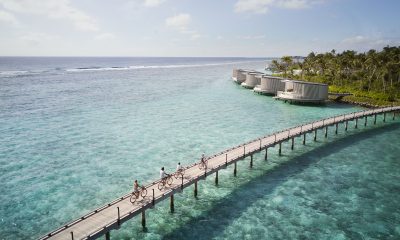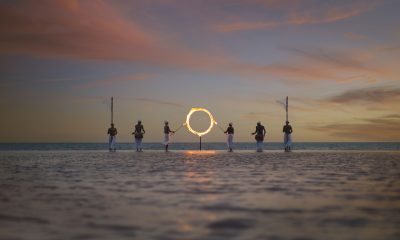Action
The Ritz-Carlton Maldives hosts tennis clinic with Paula Badosa for local young talents

The Ritz-Carlton Maldives, Fari Islands has organised a tennis clinic hosted by Paula Badosa, the Spanish professional tennis player, for young local players.
In collaboration with the Tennis Association of Maldives, on 24th November 2021, eight tennis players below the age of 14 years from Malé were invited to master their skills with the world number 8 ranking holder.
Appreciating this initiative, Badosa comments: “It brings immense pleasure to share my skills and connect with the beautiful people of this special destination. I strongly believe in inspiring and empowering passionate young players as they are the future; after all, I discovered my passion for tennis at the age of 7.”
The President of Tennis Association of Maldives, Ahmed Hafeez, adds: “I would like to thank the management of The Ritz-Carlton Maldives, Fari Islands for this invaluable opportunity in inspiring our ambitious young players.”

This community engagement initiative was aimed to inspire the next generation of local tennis players as part of the brand’s commitment to the local communities under the Community Footprints project.
During her stay, Badosa also hosted clinics for guests as part of a series of ongoing tennis clinics the resort has planned with world-class players to offer guests a meaningful holiday experience.
The Ritz-Carlton Maldives, Fari Islands is ideally located at Fari Islands, in the North Malé Atoll of the Maldives, which is a 45-minute journey by speedboat or a 10-minute seaplane flight from Malé International Airport.
The resort features white sandy beaches, turquoise lagoons and coral reefs with marine life.
Shaped by the Maldivian sun and shored by the Indian Ocean, guest villas at The Ritz Carlton Maldives, Fari Island range in size from one to three bedrooms, featuring the refined elegance and legendary service that define The Ritz-Carlton brand.
The property offers a choice of outstanding culinary venues serving an array of international and local cuisines, in addition to a full suite of fitness and recreational facilities including a signature Ritz-Carlton Spa.
The Ritz-Carlton Maldives, Fari Islands is part of Fari Islands, an archipelago that features three world-class hospitality brands inclusive of The Ritz-Carlton.
Guests have access to a picturesque Fari Marina – the archipelago’s communal beating heart. Built around a vibrant Beach Club, Fari Marina features charming boutiques and a handpicked selection of dining options.
Spaces have been designed by the renowned Kerry Hill Architects, to bring about a delicate balance of serene and social.
Action
Sun Siyam Olhuveli invests in staff wellbeing with upgraded sports facilities
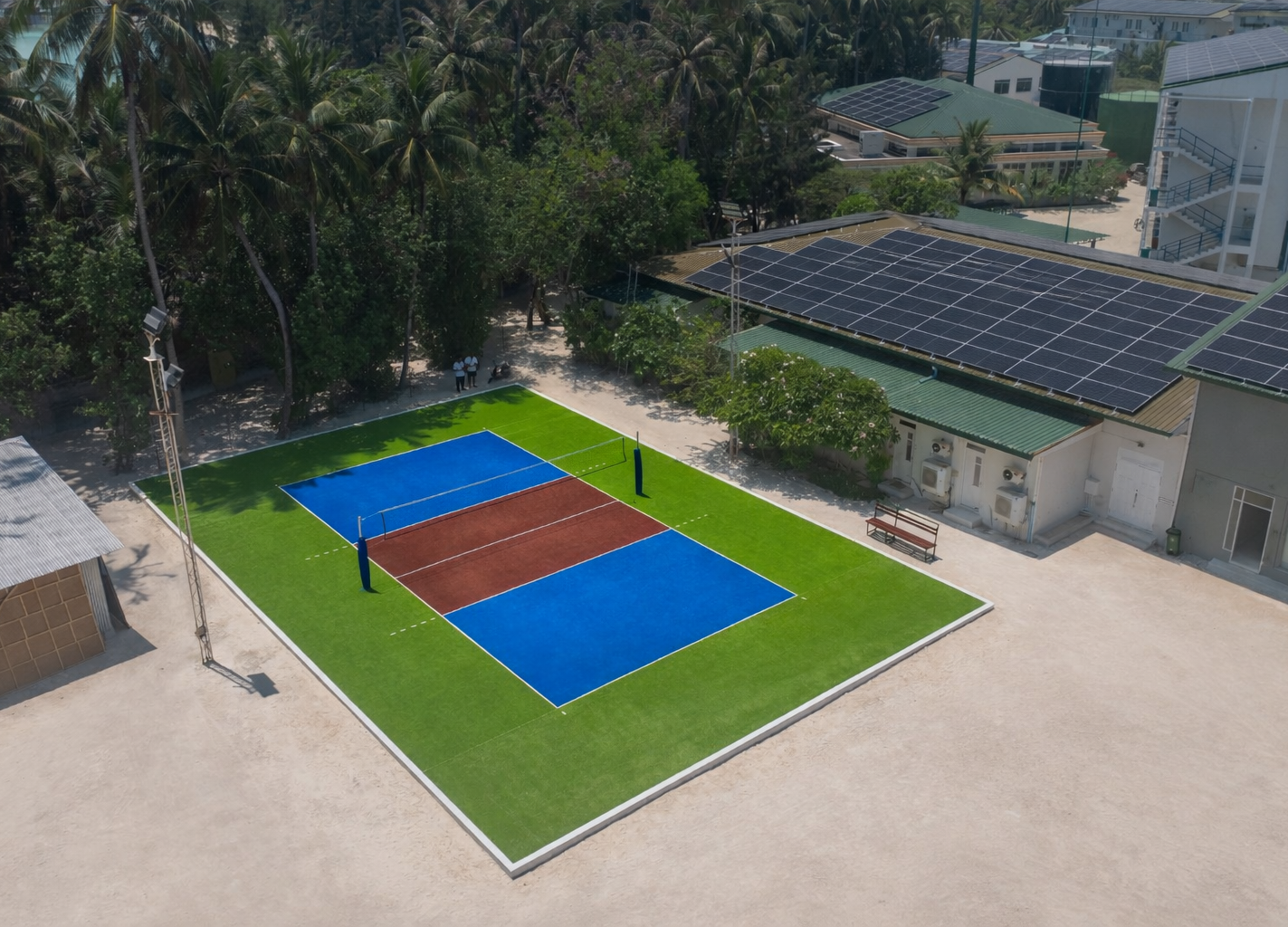
Sun Siyam Olhuveli has unveiled newly upgraded volleyball and futsal grounds for team members, reaffirming its commitment to employee wellbeing while advancing responsible, future-focused operations. The renovated volleyball grounds were officially inaugurated on 14 February, while the upgraded futsal ground opened earlier this year—together creating dedicated spaces for recreation, connection, and healthy competition across the island.
Designed to encourage regular physical activity and camaraderie beyond the workplace, the improved sports facilities represent a thoughtful investment in social infrastructure. They reflect a belief that wellbeing is fundamental to long-term performance, nurturing morale, teamwork, and a strong sense of belonging among team members.
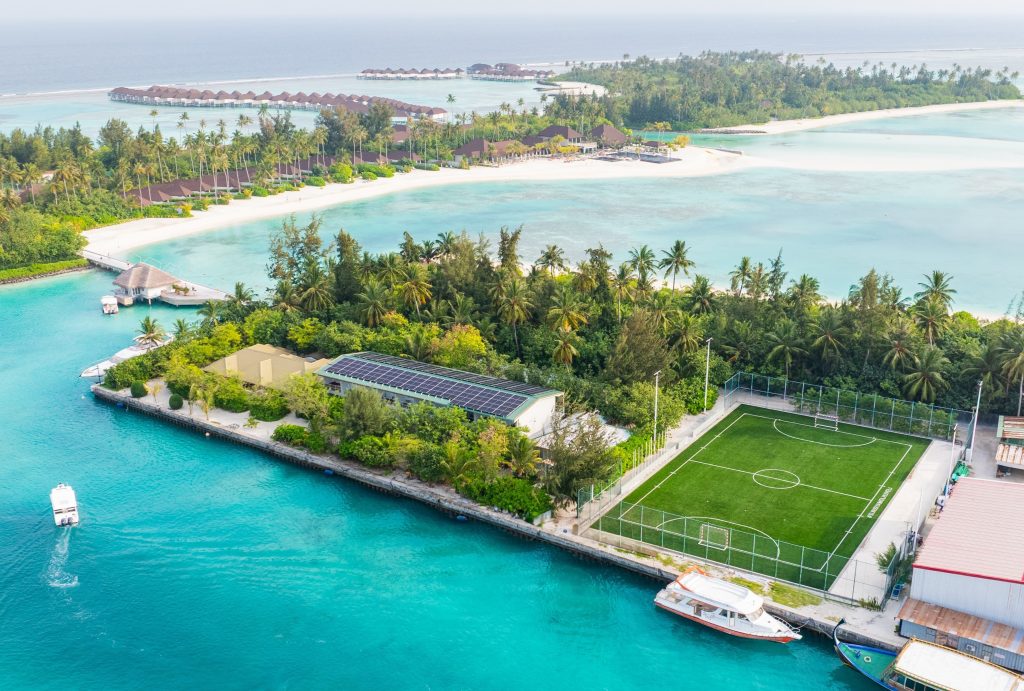
Alongside these developments, the resort has implemented NO BIN DAY every Tuesday, a practical initiative aimed at minimising food waste across operations. By encouraging mindful planning and responsible consumption, the initiative challenges teams to rethink habits around food—transforming sustainability into a shared, everyday discipline.
“Taking care of our people and the environment must go hand in hand. By investing in spaces that support our team’s wellbeing and introducing simple disciplines like NO BIN DAY, we are building a culture where responsibility is lived every day—naturally, collectively, and with purpose,” said Hassan Adil, General Manager of Sun Siyam Olhuveli.

Both initiatives form part of Sun Siyam Care, the group’s corporate social responsibility platform, and align with the Social Infrastructure and Responsible Consumption and Production pillars under the GDS framework. Together, they reflect a people-first approach to sustainability—where everyday actions create lasting impact for teams, operations, and the wider community.
Sun Siyam Care is committed to creating a positive impact for people, communities, and the environment through responsible operations, social investment, and long-term sustainability actions across its destinations in the Maldives and Sri Lanka.
Guests are encouraged to learn more about these initiatives by visiting the Sun Siyam Care website at sunsiyam.com/sun-siyam-care.
Action
Sheraton Maldives Full Moon celebrates sixth anniversary of Reefscapers collaboration
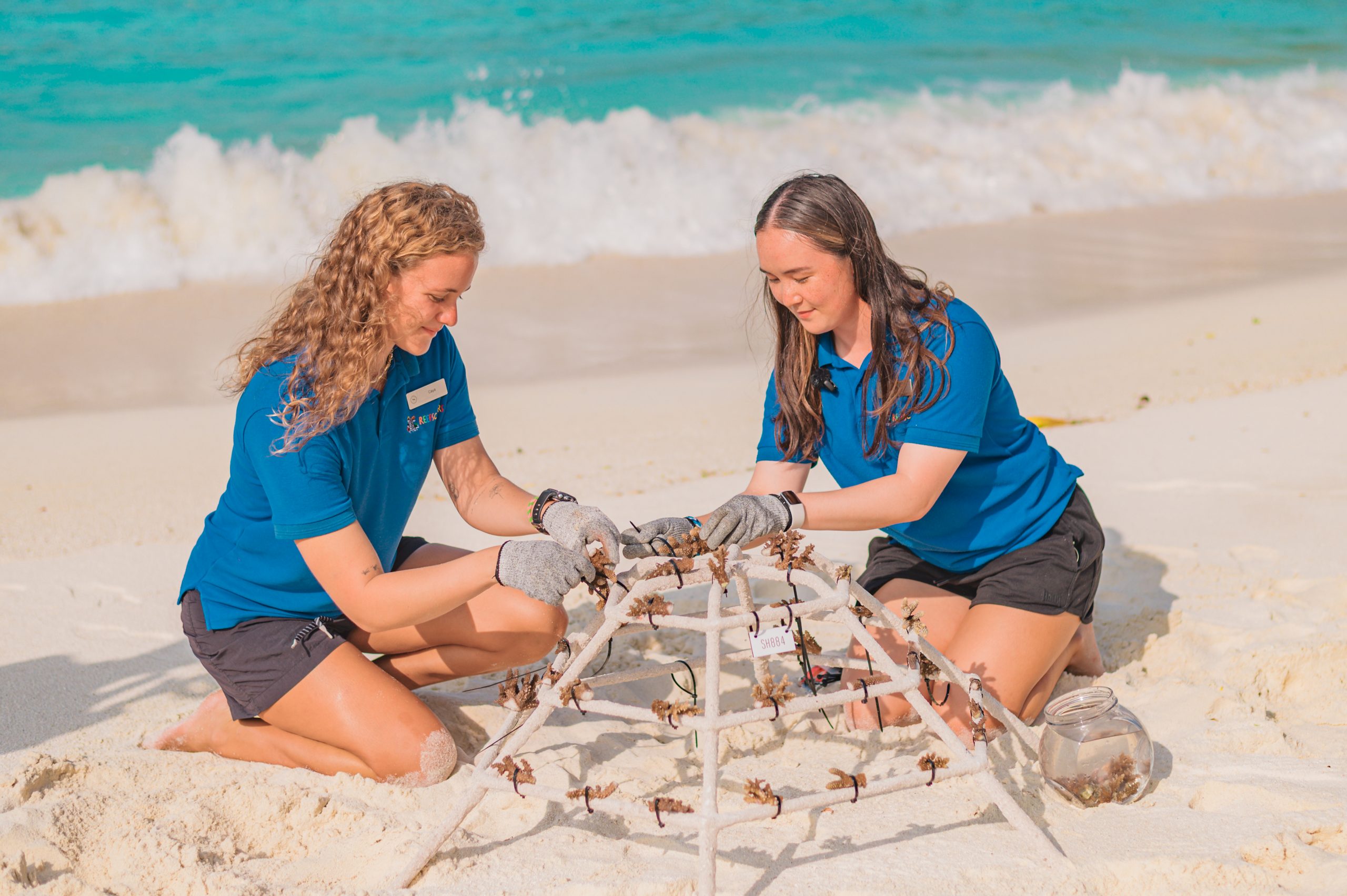
Sheraton Maldives Full Moon Resort & Spa marks the sixth anniversary of its partnership with Reefscapers on February 19, 2026, reaffirming its commitment to protecting and restoring the Maldives’ fragile reef ecosystems. Since launching the partnership in 2020, the resort and Reefscapers have worked together to restore coral habitats, support marine biodiversity, and engage guests in meaningful conservation experiences. The milestone also marks one year since the successful relocation of approximately five tons of coral to the resort’s house reefs — one of the partnership’s most significant conservation initiatives.
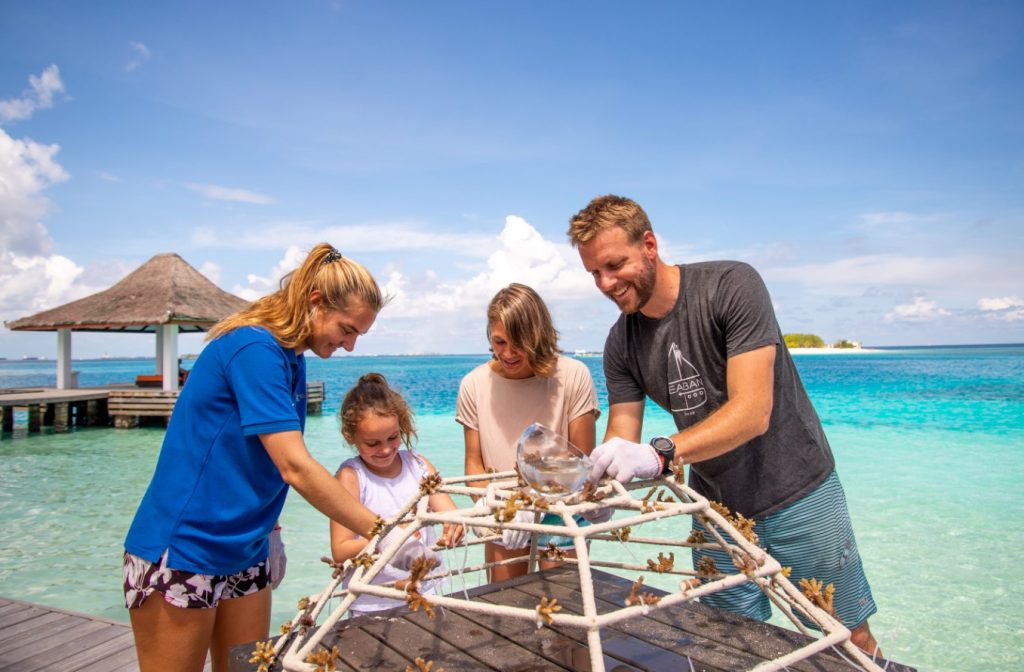
Over the past six years, the partnership has become a defining pillar of the resort’s sustainability journey, blending scientific restoration with purposeful guest engagement. To date, the initiative has resulted in the planting of 898 coral frames, supporting approximately 33,000 coral colonies now growing across the restoration sites. Through coral propagation, reef monitoring, and awareness programmes, these efforts continue to regenerate reef structures while deepening understanding of the essential role coral ecosystems play in sustaining marine life and protecting coastlines. Each thriving coral frame reflects a shared dedication to preserving the natural wonders that make the Maldives one of the world’s most extraordinary marine destinations.
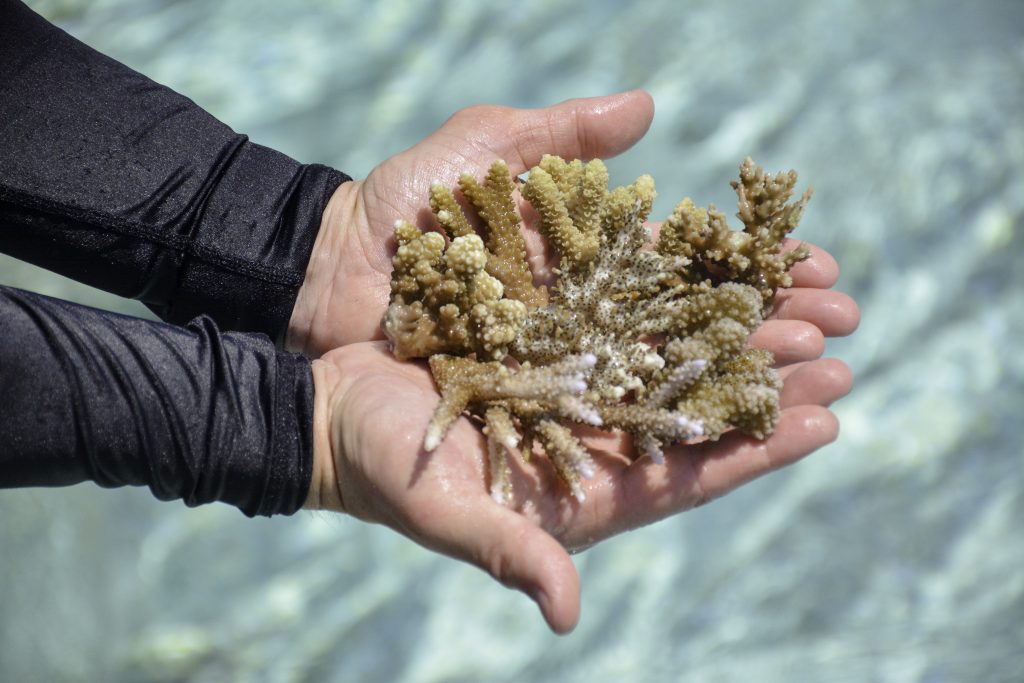
“What makes this partnership special is seeing how small, consistent actions turn into real change underwater. Watching the relocated corals settle, survive, and begin to grow over the past year has been incredibly rewarding for us and the guests who return and witness how they’ve helped restore a living reef,” shares Katelyn, the resort’s Marine Biologist.
A defining achievement of the collaboration has been the coral relocation project, which carefully transferred coral colonies from Ras Malé, also known as the Maldives Eco City, to the resort’s dedicated restoration site, safeguarding them from potential threats linked to land reclamation activities in the Fushi Dhiggaru Lagoon. One year on, these corals continue to flourish beneath the surface, strengthening reef resilience and contributing to the long-term health of the surrounding ecosystem.
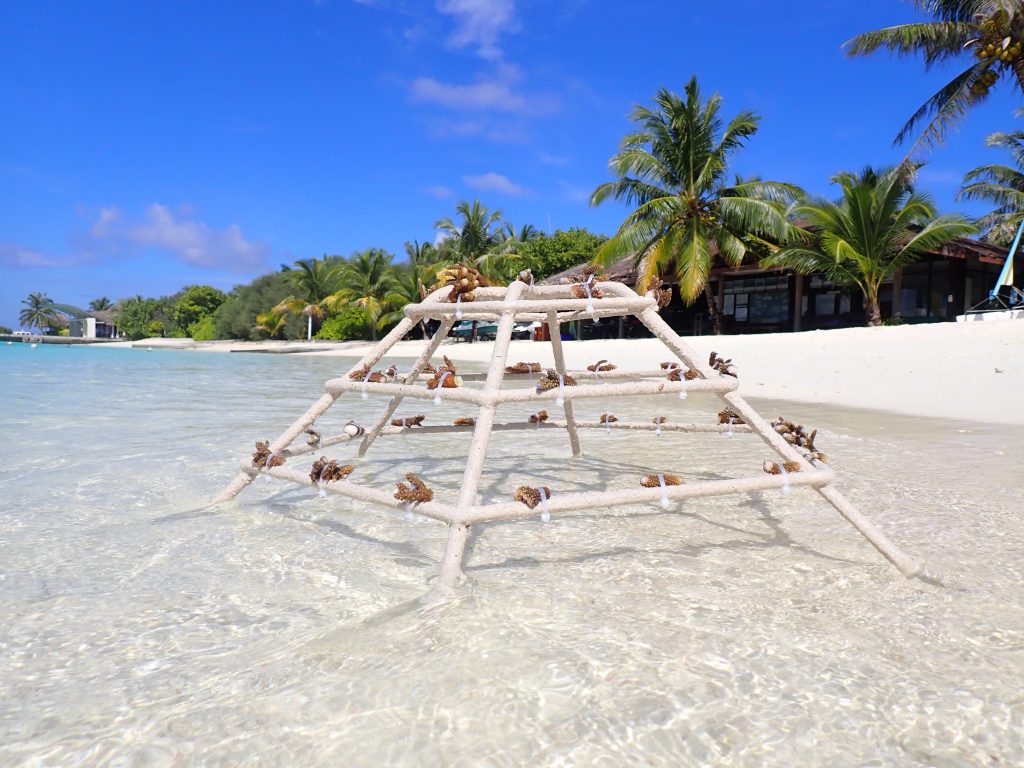
At the heart of the partnership lies the resort’s Adopt a Coral programme, part of the Good Travel with Marriott Bonvoy initiative, which encourages guests to travel with intention through meaningful environmental experiences. Through this hands-on activity, visitors can adopt and name a coral frame while learning directly from marine experts about coral ecology and the importance of protecting marine habitats.
To deepen this connection beyond the stay, guests receive growth updates on their adopted corals every six months, allowing them to follow the progress of their living contribution to the reef. As these corals grow over time, they become enduring symbols of renewal and shared responsibility, transforming a holiday memory into a lasting environmental legacy, and reflecting how travel can positively support local ecosystems and communities.
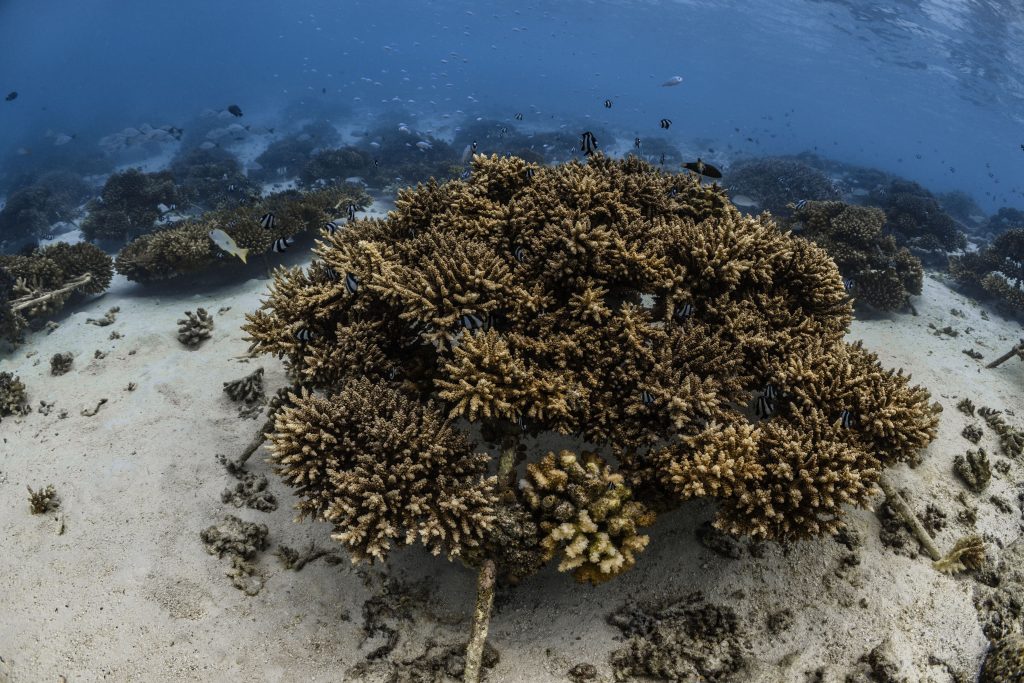
“Our island is surrounded by a remarkable marine environment, and protecting it is a responsibility we take seriously. Our partnership with Reefscapers reflects our belief that hospitality should go hand in hand with stewardship. Seeing the reef restoration progress over the past six years, and the involvement of our guests and associates in that journey, makes this anniversary especially meaningful for all of us,” comments Greg Allan, General Manager of Sheraton Maldives Full Moon Resort & Spa.
Through its continued collaboration with Reefscapers, Sheraton Maldives Full Moon Resort & Spa remains dedicated to advancing marine conservation while creating purposeful guest experiences rooted in sustainability, education, and connection to nature.
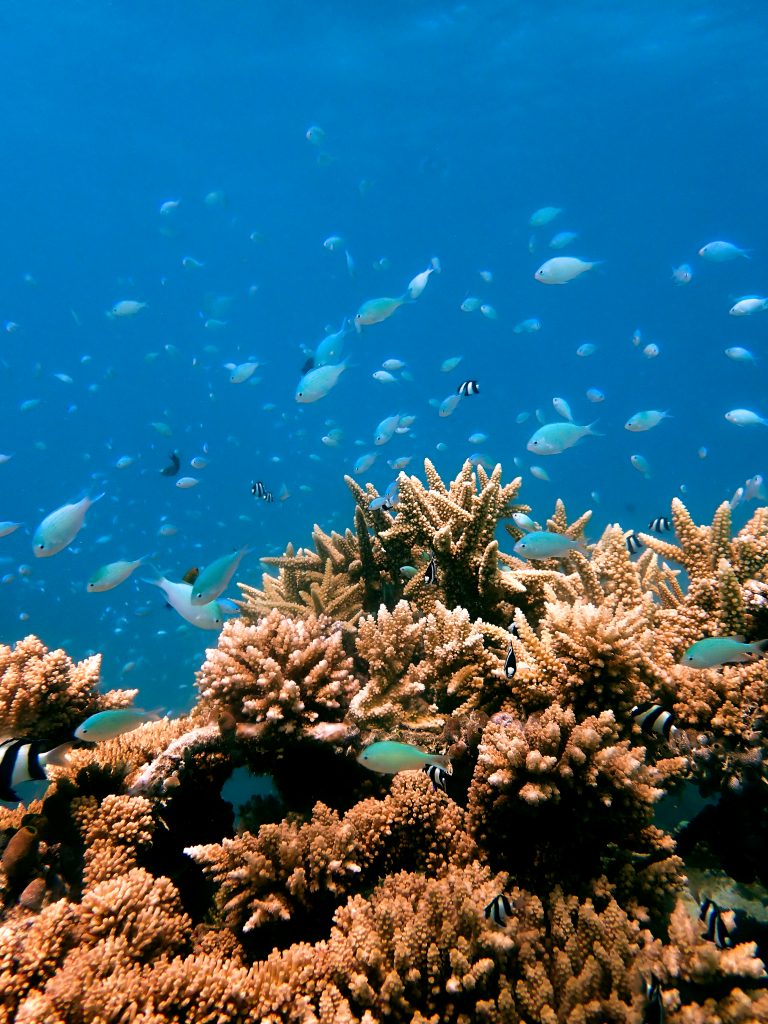
To discover more about the resort’s sustainability initiatives, join the Adopt a Coral programme, or plan a stay that supports reef conservation, visit sheratonmaldives.com or contact the reservations team at Sheraton.Maldives@sheraton.com.
Action
Sun Siyam Vilu Reef unveils expanded marine excursion portfolio

Sun Siyam Vilu Reef, part of the Sun Siyam Privé Collection, has introduced an expanded portfolio of water-based experiences designed to showcase the natural environment and marine life of the surrounding atolls. The enhanced programme combines exploration, activity and moments of calm, offering guests new ways to experience the Maldives through curated ocean journeys and personalised excursions.
Building on established activities such as Jet Car rides, SeaBob adventures and windsurfing, the resort has expanded its watersports offering to include private speedboat journeys and bespoke marine experiences. These additions are tailored for small groups seeking intimate and meaningful encounters with the ocean.
Available daily from the resort’s Watersports Centre, the new private speedboat excursions provide a personalised way to explore the hidden marine sites of Dhaalu Atoll. Designed for one to four guests, each journey offers flexibility and individual attention. Guests may choose from four-hour, five-hour or full-day itineraries, all of which include a freshly prepared barbecue lunch. From coral gardens to secluded sandbanks, the excursions highlight the region’s diverse marine landscapes.
The programme’s centrepiece is the Full Day Adventure Trip, which offers an extended exploration of key marine locations. Highlights include the Coral Garden, known for its biodiversity and reef formations; Turtle Point, where sea turtles are frequently sighted; and Nurse Shark Point, which provides opportunities to observe nurse sharks in their natural environment. The experience concludes with a beachside lunch on a private sandbank, set against uninterrupted views of the Indian Ocean.
For guests seeking a balance between activity and relaxation, the Waves of Adventure and Calmness experience combines a private two-hour snorkelling safari or Jet Ski safari with a full-body massage at the resort. The programme is designed to transition smoothly from ocean exploration to restorative island time, reflecting the relaxed pace that characterises Sun Siyam Vilu Reef.
As part of the Sun Siyam Privé Collection, Sun Siyam Vilu Reef continues to focus on personalised service and experiences rooted in the natural setting of the Maldives. Through its expanded watersports offering, the resort invites guests to engage with the marine environment while enjoying a sense of privacy, discovery and connection to the Maldivian seascape.
-

 Cooking1 week ago
Cooking1 week agoA spring of flavours: Nowruz dining series at JW Marriott Maldives Resort & Spa
-

 News1 week ago
News1 week agoPulse Hotels & Resorts unveils Aura Maldives, a mindful luxury sanctuary
-
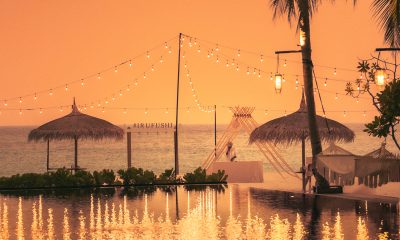
 News1 week ago
News1 week agoSun Siyam Iru Fushi sets new nenchmark with 24 Hour Premium All Inclusive Dine Around
-
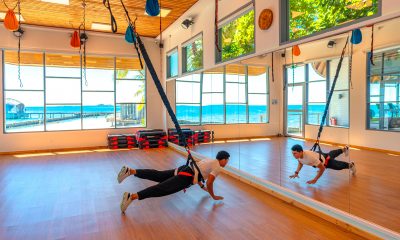
 Fitness1 week ago
Fitness1 week agoOUTRIGGER Maldives Maafushivaru launches expanded wellness programming for 2026
-
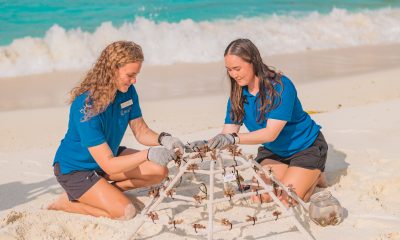
 Action1 week ago
Action1 week agoSheraton Maldives Full Moon celebrates sixth anniversary of Reefscapers collaboration
-
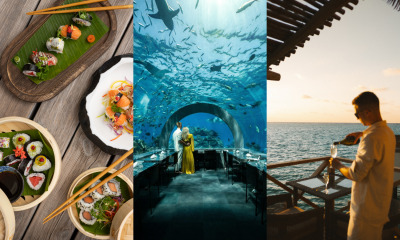
 Featured1 week ago
Featured1 week agoYou & Me Maldives unveils curated Premium All Inclusive programme
-

 Awards6 days ago
Awards6 days agoCentara Mirage Lagoon Maldives named Luxury Family Friendly Resort of the Year
-
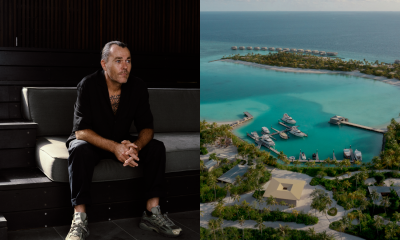
 Cooking1 week ago
Cooking1 week agoPatina Maldives hosts Chef Shannon Bennett for exclusive April residency





